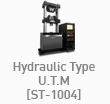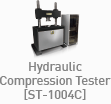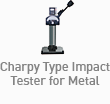| [ISO] ISO 14125 Bend Test for Fiber-Reinforced Plastic Composites | |
|---|---|
| Writer : 관리자(salt@light-salt.kr) Date : 24.01.23 Hit : 54 | |
| Tags : #MaterialTestingMachine,#MaterialTester,#HydraulicUniversalTestingMachine,#HydraulicTensileTestingMachine,#CompressionTester,#UTM,#Salt,TensileTester,#ISO14125,ISO178,ASTM D790,#InternationalStandard,#PlasticBendTest,#BendTest,#3PointBending,#4PointBending,#bendingtest | |
| Attachments : | |
|
Hello! We are Salt Co., Ltd., a specialized manufacturer of material testing machines. Today, let's discuss the international standard ISO 14125.
Flexural testing standards for materials such as plastics, metals, and composites vary internationally.
International standards for bend tests on materials such as plastics, metals, and composites include:
For posts related to ISO 178 and ASTM D790, please visit the link at the bottom.
What is ISO 14125?
ISO 14125 is an international standard for testing methods to determine the bend characteristics of fiber-reinforced plastic composites. This standard focuses particularly on evaluating the flexural properties of fiber-reinforced plastic composites among their mechanical characteristics.
ISO 14125 provides guidelines for various bend test methods, including 3-point bending and 4-point bending. Bend tests are used to determine material strength, elasticity, flexural strength, and provide essential information for the design, manufacturing, and quality control of fiber-reinforced plastic composites.
This standard covers specific bend test procedures for fiber-reinforced plastic composites, including specimen preparation, test conditions, and result analysis. Fiber-reinforced plastics, containing reinforced fibers in a plastic matrix, are used in various fields due to their lightweight and strength.
By using this standard to evaluate the bend characteristics of fiber-reinforced plastics, information regarding material quality, durability, and suitability can be obtained.
Test Conditions:
There are two methods, namely the 3-point bend test and the 4-point bend test. There are four material grades defined by thickness, width, and length, categorized as Class I - IV. The standard requires that the measurement tolerance does not exceed +/- 1% of the full scale for bend testing.
ISO 14125 is based on the ISO 178 standard, and both standards involve applying a load between freely supported bars while conducting 3-point bend tests and 4-point bend tests. Recorded material properties, as per the standard, include flexural stress, flexural strain, flexural elastic modulus, and interlaminar shear modulus.
To comply with ISO 5893, a compression testing machine must be used, maintaining a speed within (0.5 +- 20%) mm/min to (500 +- 10%) mm/min.
For the bend test, the specimen is symmetrically placed on support fixtures. Subsequently, it undergoes testing by attaching it to a universal material testing machine with the corresponding jig. In the case of a 3-point load, the load is applied at the center of the specimen, while for a 4-point load, it is uniformly applied by two load members. The load is applied until the specimen is either destroyed or reaches a predefined deformation value.
The bend deformation of the specimen can be measured using strain gauges, extensometers, or displacement transducers on the load frame.
SALT's 3-point bending jig(1)
SALT's 3-point bending jig(2)
Universal material testing machine from SALT, bending test using a 3-point bend jig.(1)
Universal material testing machine from SALT, bending test using a 3-point bend jig.(2)
Salt Co., Ltd.'s all-purpose material tester provides a variety of grips, extensometers and test solutions to meet the requirements of physical property testing of various materials. "We value our relationship with you more than just selling our products."
Salt-s@Light-Salt.kr www.light-salt.kr |
|
| Prev | ISO 6383-1:2015 Hardness Test of Plastic Film |
| Next | What is ASTM D 2290? Split Disk, Ring Segment |
|
|























































































































![[포맷변환]iso-logo-print.png](http://www.light-salt.kr/admin/data/webedit/20240123173257_80958661.png)






